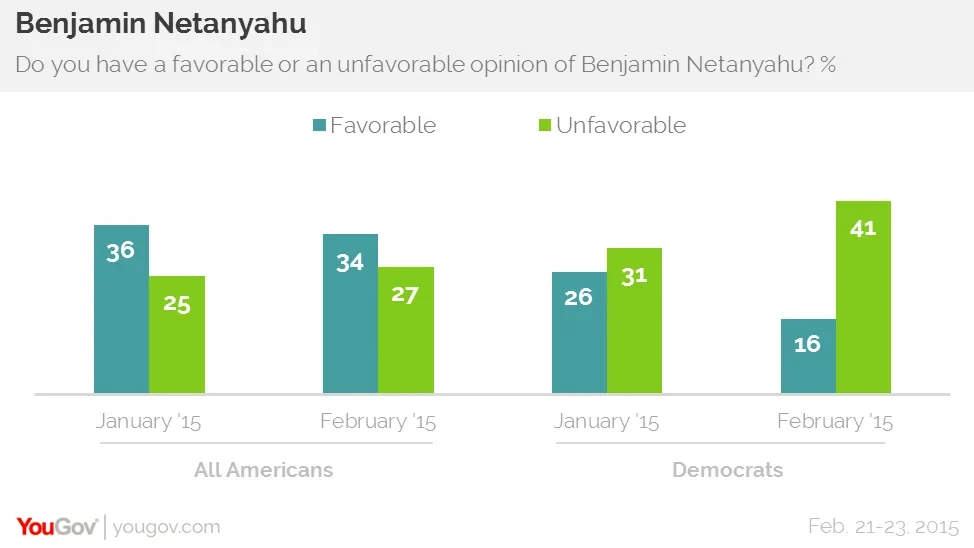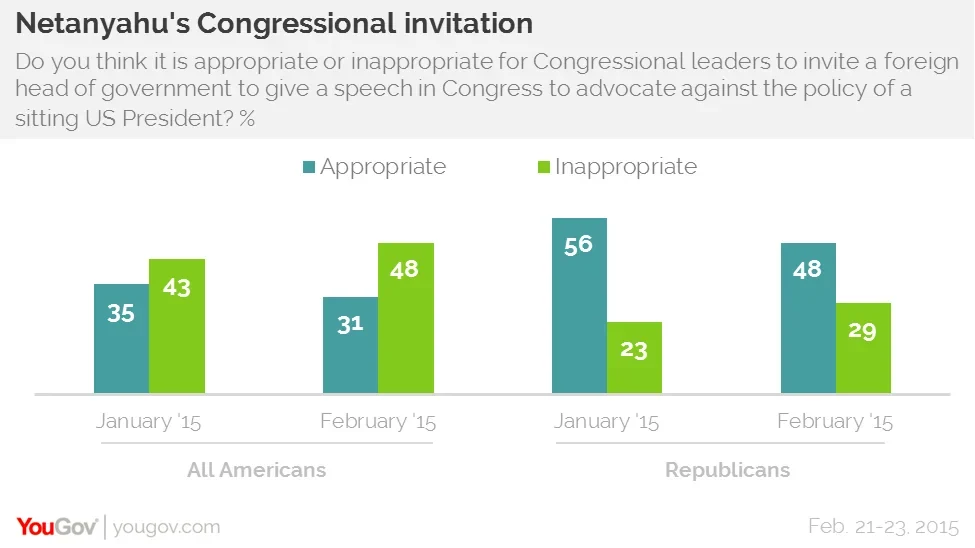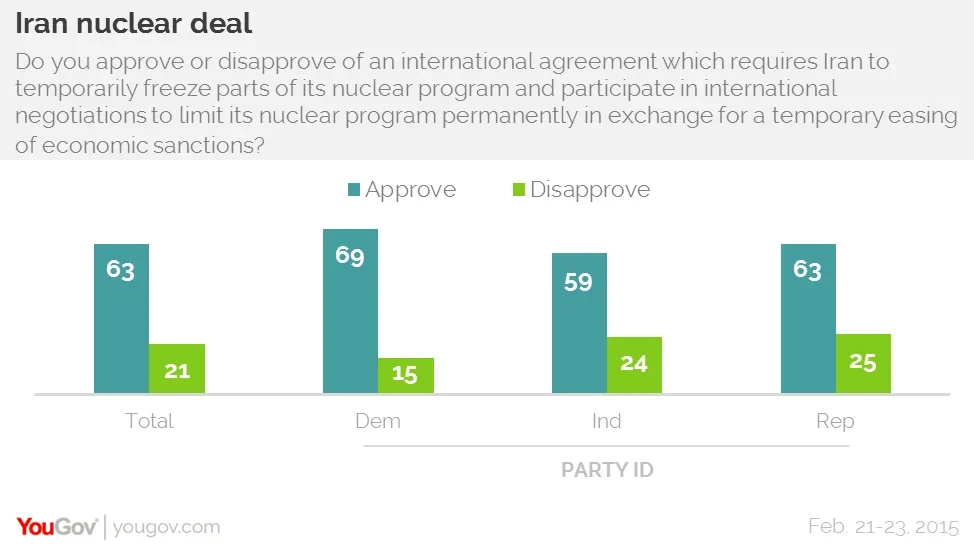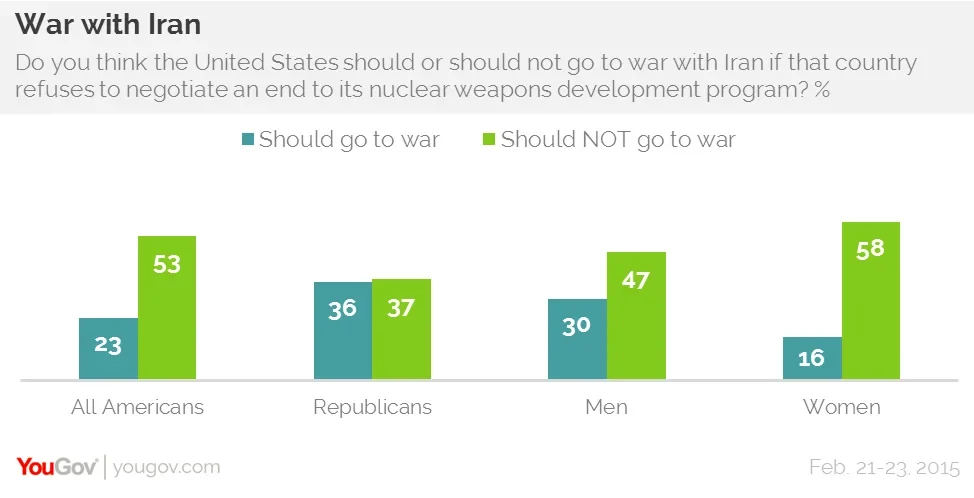Democrats are increasingly hostile towards Israeli Prime Minister Benjamin Netanyahu
Republican House Speaker John Boehner’s invitation to Israel’s Prime Minister Benyamin Netanyahu, asking him to address Congress about U.S. policy towards Iran, may have politicized the public’s feelings but not about Israel or Iran. There are now larger partisan differences about Netanyahu himself. Some Democrats won’t attend Netanyahu’s speech, and the White House has made it clear that the invitation was at least a breach of protocol, and perhaps “destructive” to U.S.-Israel relations.
In the latest Economist/YouGov Poll Democrats have taken a decidedly negative view of Netanyahu; not only is it worse than Republican opinion, it is a change from just a month ago. A month ago, their opinion was mixed, but now they are clearly negative.

Republicans remain favorable about Netanyahu by nearly five to one (51% are favorable, 11% are not); in fact the percentage of Republicans with a negative view has dropped seven points since January.
Democrats view Netanyahu as having damaged U.S.-Israel relations by more than two to one. Republicans overwhelmingly disagree.
The public in general opposes the invitation to Netanyahu, as they have since January. They find it inappropriate for Congress to invite a foreign leader to give a speech in opposition to the policy of the President. And while more Republicans say doing so is appropriate, their margin of support had dropped from 33 points in January to 19 points today.

Americans might not agree with Netanyahu’s opposition to negotiating with Iran, part of the subject of the Prime Minister’s speech. Two-thirds of adults agree that Iran poses a threat to the United States, with one in four calling it an immediate and serious threat. Two-thirds don’t trust Iran much when it comes to keeping agreements. But nearly two-thirds would approve of an agreement with Iran to freeze its nuclear program, in return for the West temporarily easing sanctions and continuing negotiations. Both Republicans and Democrats agree.

Americans are also not willing to risk a war with Iran if it refuses to negotiate an end to its nuclear development. The margin against war is two to one overall, but Republicans are evenly divided. There is also a sizable gender gap, as there frequently is when it comes to issues of war and peace. Men oppose a war with Iran by 17 points; women say they would oppose one by 42 points.

Opinions about Israel itself remain positive. Americans overwhelmingly regard Israel as a friend, and nearly half regard it as an ally.
There is not a lot of trust in either the President or the Congress when it comes to foreign policy. Only 36% approve of the way Barack Obama is handling foreign policy. A third say they trust neither the President nor the Senate to negotiate treaties (the President gets more support than the Senate: 27% trust him alone, 16% the Senate).
Economist/YouGov poll archives can be found here.








